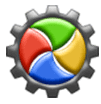
Advertising seems to be blocked by your browser.
The ads help us provide this software and web site to you for free.
Please support our project by allowing our site to show ads.
TECHNO Driver Manufactures
Description extracted from Wikipedia:
| Name | Techno |
Techno is a genre of electronic dance music (EDM) that is characterized by a repetitive four on the floor beat which is generally produced for use in a continuous DJ set. The central rhythm is often in common time (4/4), while the tempo typically varies between 120 and 150 beats per minute (bpm). Artists may use electronic instruments such as drum machines, sequencers, and synthesizers, as well as digital audio workstations. Drum machines from the 1980s such as Roland's TR-808 and TR-909 are highly prized, and software emulations of such retro instruments are popular. Use of the term "techno" to refer to a type of electronic music originated in Germany in the early 1980s. In 1988, following the UK release of the compilation Techno! The New Dance Sound of Detroit, the term came to be associated with a form of electronic dance music produced in Detroit. Detroit techno resulted from the melding of synthpop by artists such as Kraftwerk, Giorgio Moroder and Yellow Magic Orchestra with African American styles such as house, electro, and funk. Added to this is the influence of futuristic and science-fiction themes relevant to life in American late capitalist society, with Alvin Toffler's book The Third Wave a notable point of reference. The music produced in the mid to late 1980s by Juan Atkins, Derrick May, and Kevin Saunderson (collectively known as the Belleville Three), along with Eddie Fowlkes, Blake Baxter, James Pennington and others is viewed as the first wave of techno from Detroit. After the success of house music in a number of European countries, techno grew in popularity in the UK, Germany, Belgium and the Netherlands. In Europe regional variants quickly evolved and by the early 1990s techno subgenres such as acid, hardcore, ambient, and dub techno had developed. Music journalists and fans of techno are generally selective in their use of the term; so a clear distinction can be made between sometimes related but often qualitatively different styles, such as tech house and trance.


